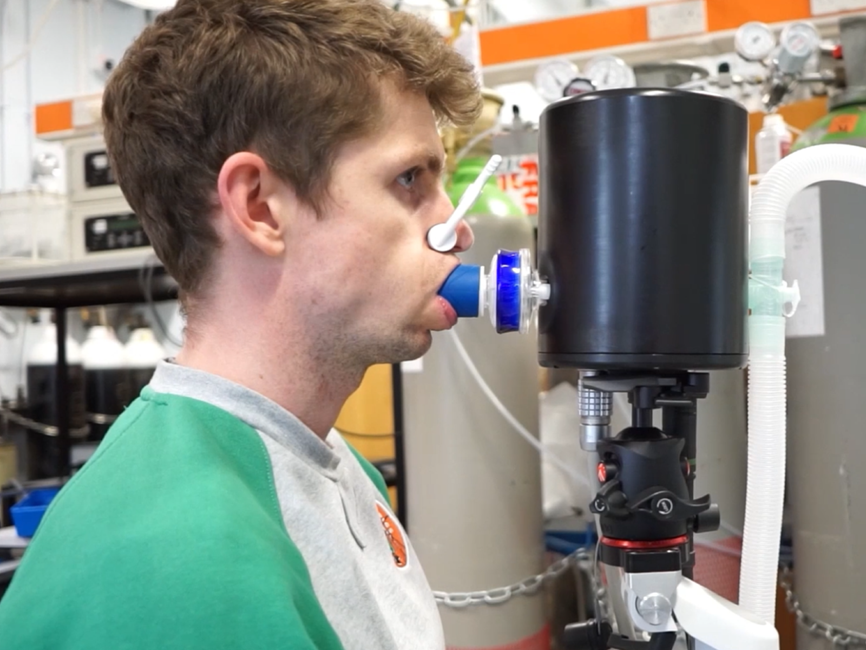A team who developed a novel device to measure lung function were among several Oxford researchers to receive prestigious prizes from the Royal Society of Chemistry (RSC).

The Molecular Flow Sensor Team – a multidisciplinary collaboration between chemists, physiologists, computer modellers and clinicians at Oxford University Hospitals NHS Foundation Trust – won the prize for the development a molecular flow sensor for non-invasive breath analysis to provide measurements of respiratory disease and cardiac output.
The team includes Professor Peter Robbins from the NIHR Oxford Biomedical Research Centre’s Respiratory Theme.
The RSC’s Horizon Prizes celebrate the most exciting, contemporary chemical science at the cutting edge of research and innovation. They are for teams or collaborations who are opening up new directions and possibilities in their field, through ground-breaking scientific developments.
The Molecular Flow Sensor Team’s work uses a combination of optical, mechanical, signal processing and computational techniques to construct a small instrument called a Molecular Flow Sensor, which can make highly precise, non-invasive measurements of breath gases.
This sensor has been used as a tool in several respiratory medical studies, including measuring the lung function of asthma and cystic fibrosis sufferers as well as for investigations into long COVID. All the results so far point to the effectiveness of the sensor in early diagnosis and management of lung disease.